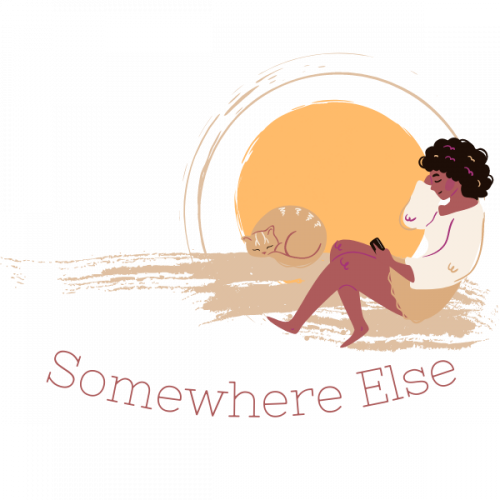
Changing careers has been a big question for some people. Yet, everyone has their own reasons why they changed careers later in life. For some, it grew out of necessity. In today’s working environment, you often need to acquire new skills and certifications in order to advance in your career. For others, the desire to work in a different industry arises out of boredom with continuous job changes. And for others, it just seemed like the right thing to do, or maybe it was a chance to start a career anew. Whatever the reason, deciding to change careers later in life is not easy. It requires careful planning and may involve a great deal of job searching and interviewing and figuring out how to add the new career to your resume.
Finding a new job is hard, but landing a career transition position doesn’t have to be. The “career change” buzzword is everywhere these days, but what does it really mean? A career transition position is a stepping stone into a new field. It’s a way to strengthen your skills and industry knowledge, or you can learn something new. Finding a career transition position can help you explore a new career without feeling the scary pressure of starting a new job.
Starting over in a career later in life can be a challenging transition, and many people avoid making the leap because they are uncertain about their available options. Fortunately, a fresh start doesn’t have to entail starting from scratch. You can carve out a new path by building on your previous experience.
The good news is, you don’t have to start over completely. You can build on your previous experience and take advantage of online courses to learn new skills and adapt to the changing job market. For example, if you want to be a contractor, you can explore websites like digitalconstructive.com to gain new skills. Such websites tend to offer comprehensive licensing courses that you can take at your own pace to gain the qualifications needed for your new career.
Similarly, if you want to become a plasterer, then you may have to invest some quality time in learning the skills required to excel in this profession. You cannot expect success immediately, if you are not willing to put in the hours and effort that it takes to excel in this profession. Consider enrolling in specialized training programs where you can learn to plaster, or apprenticeships that focus on plastering techniques and industry standards. Online platforms and educational resources, such as plastering courses on reputable websites or video tutorials, can be valuable assets in acquiring the necessary skills at your own pace.
Remember, after several years, it’s natural to feel burned out or bored with your job. But changing careers in midlife doesn’t mean you have to give up work. Geography, family, personal circumstances, and finances can play a big part in a career change. Even a lifetime of job experience isn’t an ironclad guarantee that you can jump straight into a new career.
Reasons why people go for a change in career later in life:
Many people consider changing their careers later in life. A huge change can be necessary for some people for growth and development. For others, a midlife career change can be an opportunity.
- They want to lessen their work stress in their previous job.
- They want to gain more career advancement and improve more skills and abilities.
- They want to go for more salary and secure that they are properly benefited.
- They want to feel more appreciated by their bosses for their assigned job.
- They want to explore more flexible time for working hours to maximize time.
- They want to have a change in the environment that they are working for.
- Lastly, they want to meet new people for them to work with and become a friend with in the long run.
Don’t give up your dream of changing careers. Many people look back on their lives and resent the fact that they stuck with what they knew instead of following their passions. But you don’t necessarily need to change careers, at least not right away. You can take steps to find passion again, and it’s never too late to follow that dream.
The transition from one career to another can be an exciting and empowering experience. This transition also happens more often as people are near their fifties and sixties. Many workers reach their career peak in their early forties and later decide it’s time for a change.
Often it’s because they want to semi-retire and find something less stressful to do. Switching to a less stressful job later in life is a thoughtful decision that requires careful consideration and planning. Many individuals find fulfillment in transitioning to careers that offer a better work-life balance and reduced stress levels.
One viable option is becoming a driving instructor, a profession that allows you to share your expertise while maintaining a more relaxed pace. To embark on this journey, consider enrolling in a reputable driving instructor training course online. These courses offer the flexibility needed for individuals navigating a career change later in life. By undergoing online training, you can acquire the necessary skills and certifications at your own pace, making the transition to a less stressful and more fulfilling career smoother and more achievable.
That’s just one example, but there is a prevailing notion that changing careers later in life sounds more like an impossible task than a possibility. The reality, however, is that it happens to many people. This change could be driven by various reasons, such as finding no joy or passion in your current job, which prompts the desire to pursue your dreams. For instance, if you’ve always aspired to have a career in makeup, there’s no reason to hold back from enrolling in Special effects makeup courses from The Iver Makeup Academy or similar institutions.
Remember, the key lies in investing in the right knowledge and training. Acquiring new skills can make you more competitive in your job search, so learning how to change careers later in life will enable you to pursue and secure your dream job.
In past generations, most adults held down one job throughout their entire working life, often in the same industry. Today, though, changing careers is easier to do; as technology advances, more workers are holding down multiple jobs. People are changing careers more often, and many people find that they gain a lot from being able to bounce around different industries.
If you’re considering changing careers, don’t settle for a career change job. Instead, look for a job where you can learn new skills and have new colleagues, so you’ll be energized and inspired. Keeping inspired in a new environment is a good way to start a new work as positively as possible.
